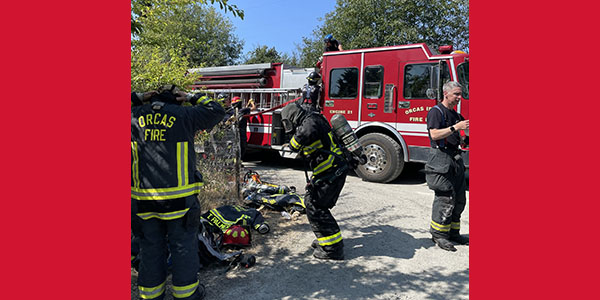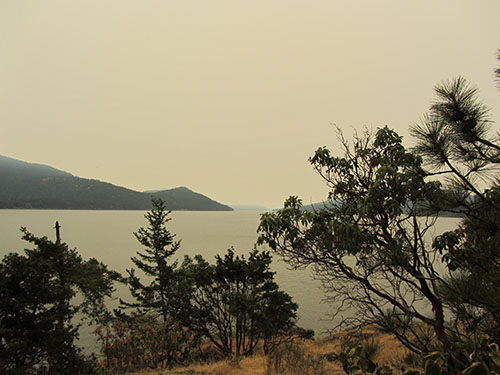By Michelle Barbieri and Nadia Rifat
(Third year veterinary students Michelle Barbieri and Nadia Rifat have started their 10 week internship with the SeaDoc Society and the San Juan County Marine Mammal Stranding Network. Since arriving on Orcas Island, Michelle and Nadia have been responding to marine mammal strandings, have become certified as small boat operators, and have participated in the necropsy of dead marine mammals collected by stranding network volunteers. Following is the article they wrote for publication on the subject)
Summer is in full swing, and the harbor seal pupping season in the San Juan Islands is underway. For those of you that encounter harbor seal pups on the beach, there are a few things to remember.
Often, it is normal for a harbor seal pup to be on the beach. When born, harbor seals have little insulation. Seal milk has 40-50% fat, ten times as much as whole cow milk. This fat-rich milk helps seal pups triple their weight in 3 to 6 weeks, after which they are weaned. To produce milk, the mother must eat, too. Because the pup is less able to swim and keep warm, she often leaves the pup on the beach while she forages for food. These healthy pups are not abandoned and are alert, often noisy and usually roly-poly. Please give them space and keep pets, boats and people away.
Harbor seal pups also can become separated from their mothers before they are weaned. This can be due to boat activity, human disturbance, injuries, illness or can even be the fault of an inexperienced mother. Stranded pups are thin and lethargic from lack of nourishment. Many of these pups will not survive, which is nature’s way of keeping our thriving harbor seal population in check.
Harbor seals are protected under the Marine Mammal Protection Act and picking up a stranded harbor seal is against the law. If you find a harbor seal pup on the beach, please help by calling the marine mammal stranding hotline at 1-800-562-8832. The San Juan County Marine Mammal Stranding Network, a program of the Whale Museum, has volunteers that are trained and authorized to respond to marine mammal strandings in the San Juans.
Data collected on stranded harbor seals helps us understand what is happening with the seal population and gives us important information about diseases that can impact harbor seals, killer whales and even human health. Under certain circumstances, the Stranding Network is authorized to transfer stranded harbor seal pups to Wolf Hollow Wildlife Rehabilitation Center where they are rehabilitated and released. Network representatives will make this decision on a case-by-case basis.
Enjoy harbor seals and other marine wildlife from a safe distance. If you find a harbor seal pup on the beach, live or dead, be sure to call the stranding hotline at 1-800-562-8832.






